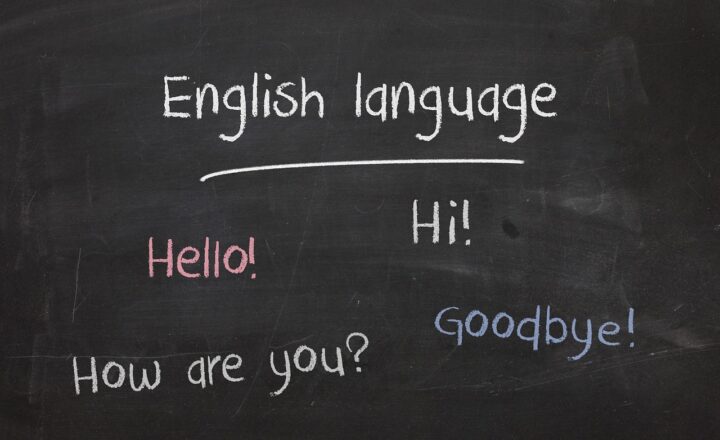How Language Diversity Shapes National Identity and Political Policy
November 16, 2024

Language is not merely a tool of communication; it is a profound medium that shapes our thoughts, cultures, and identities. As nations become increasingly multicultural and multilingual, the diversity of languages within a society has profound implications on national identity and the political landscape. In this article, we will explore how language diversity influences national identity and political policy decisions, the challenges posed by multilingual societies, and the potential benefits of embracing linguistic diversity.
1. Understanding Language Diversity
Language diversity refers to the coexistence of multiple languages within a specific community or nation. According to Ethnologue, there are over 7,000 spoken languages in the world today. This rich tapestry of languages reflects not just different modes of communication but also distinct cultures, histories, and ways of life. In regions where multiple languages are spoken, such as in Canada (with English and French), India (with Hindi, Bengali, Tamil, and many others), and Belgium (Dutch, French, and German), language diversity is inherent.
The significance of language extends beyond mere verbal interaction; it encompasses heritage, social values, and a sense of belonging. Understanding this intricacy is essential when exploring how language shapes national identity and political policy.
2. Language and National Identity
National identity is often constructed around shared language, customs, and traditions. When a nation embraces a dominant language, it can strongly influence citizens’ understanding of belonging and identity. Languages can serve as symbols of national unity, culture, and pride.
However, in linguistically diverse nations, the relationship between language and national identity is more complex. Multiple languages can foster an inclusive identity that values cultural plurality. Conversely, the dominance of a single language can marginalize minority languages and undermine the associated cultures. Here are a few examples:
- Canada: Canada’s bilingual policy acknowledges both English and French as official languages, greatly shaping its national identity that values inclusivity and multiculturalism.
- India: With over 1,600 languages spoken, India’s identity is multifaceted, promoting linguistic and cultural diversity as a core value, though it struggles with the dominance of Hindi at a national level.
- Switzerland: Switzerland recognizes four national languages, fostering a sense of shared identity among its diverse linguistic groups, promoting unity in diversity.
The awareness of language diversity thus becomes a vital component in the narrative of national identity. Nations embracing this diversity often emerge as more cohesive societies where people feel represented and included.
3. Language Diversity and Political Policy
The impact of language diversity extends significantly into the realm of political policy. Language policies can dictate the linguistic rights of citizens, allocation of resources for language education, and even the political representation of linguistic minorities.
Considerations surrounding language diversity often lead to debates over educational policies, voting rights, and governmental services. Here are some areas where language diversity plays a critical role in shaping political policy:
- Language Education: Governments may establish bilingual education systems to promote literacy in both the dominant language and minority languages. For instance, the Welsh Language Act of 1993 aimed to promote the use of the Welsh language, ensuring its survival and relevance in public life.
- Official Language Recognition: The recognition of official languages can influence national unity and inclusion. In South Africa, the constitution recognizes 11 official languages, promoting the rights of various language speakers and fostering national unity through representation.
- Cultural Recognition: Multilingual policies may advocate for cultural and historical recognition of minority languages, fostering national policies that support cultural heritage preservation. For example, India’s linguistic states are based on language, allowing for cultural integrity along with political recognition.
The careful evaluation of language diversity in policy-making can serve to unify citizens, enhance engagement, and mitigate feelings of disenfranchisement among linguistic minorities.
4. Challenges of Language Diversity in Politics
While language diversity can significantly enrich a nation’s identity and political framework, it also presents substantial challenges that policymakers must grapple with:
- Language Barriers: Communication gaps can create barriers in governance, law enforcement, and public service delivery. In multilingual nations, the need for translation services can strain resources and impact efficiency.
- Inequality among Language Speakers: Political power is often skewed in favor of the dominant language speakers, leading to marginalization of minority language communities. This can foster discord and conflict within societies, as witnessed in places like Belgium and the Basque Country in Spain.
- Policy Implementation: Establishing equitable policies can be complicated and contentious, resulting in pushback from dominant language communities. Carefully balancing language rights while promoting national unity is an ongoing challenge for political leaders.
Addressing these challenges requires comprehensive strategies that advocate for the rights of all linguistic communities and promote a sense of belonging.
5. The Positive Aspects of Embracing Language Diversity
Despite the challenges, the advantages of embracing language diversity in shaping national identity and political policies are profound:
- Social Cohesion: Acknowledging linguistic diversity fosters inclusion and respect among various cultural and linguistic groups, bringing about a community ethos where diversity thrives, as seen in Canada’s celebration of multicultural festivals.
- Cultural Enrichment: Multilingual societies benefit from a fusion of cultures, traditions, and knowledge systems. This contributes to a vibrant national culture that celebrates uniqueness, encouraging creativity and innovation in the workforce and beyond.
- Enhanced Global Competence: Language diversity equips citizens with communication skills crucial in today’s global economy. Being multilingual opens avenues for international collaboration, trade, and diplomacy, benefiting national interests on a broader stage.
All these elements contribute towards a more resilient society capable of navigating the complexities of a globalized, interconnected world.
Conclusion
Language diversity significantly shapes national identities and influences political policies. Understanding the intricate relationship between language, identity, and politics is essential for fostering inclusive societies in an increasingly globalized world. By recognizing, respecting, and promoting linguistic diversity, nations can enhance social cohesion, cultural richness, and global engagement, ultimately creating a more robust tapestry of national identity. As we move forward into an era defined by multiculturalism, embracing language diversity will not only be a matter of policy but a critical endeavor in nurturing the identities that bind us together.
By exploring the depths of how language shapes our identities and governance, we encourage a future where diversity is celebrated, enriching our collective human experience.







